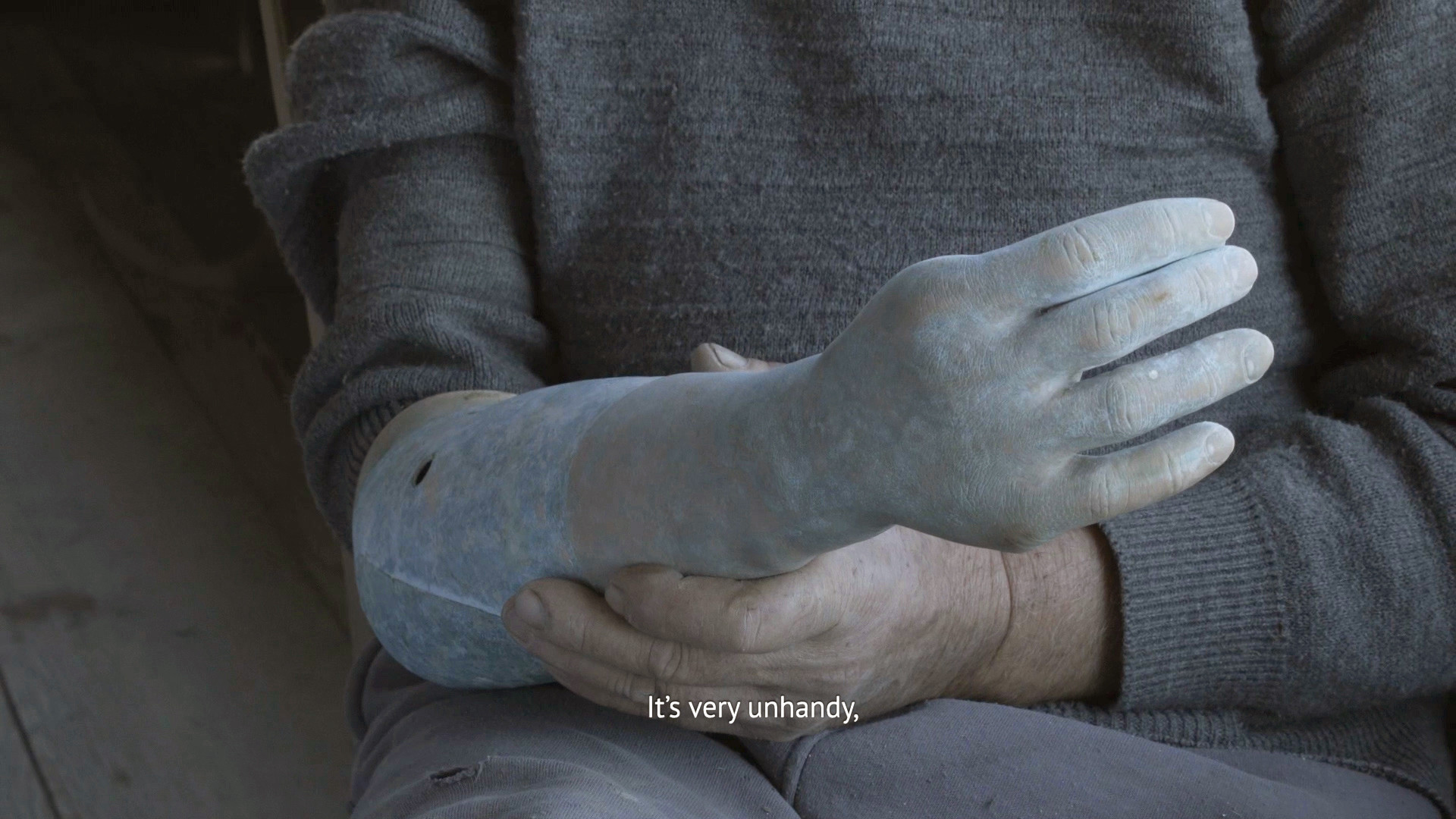Invisible Hand of My Father: an interview with Giorgi Gago Gagoshidze and an online screening of his film
The Tashkent-Tbilisi project presents the online premiere of a film by Giorgi Gago Gagoshidze, which tells the story of his father who had to leave Georgia as a migrant worker to Europe. In this interview with film curator Rita Sokolovskaya, Gagoshidze speaks about his work, post-Soviet political ideologies and invisible labor.
The film screening was available from the 5th until the 15th of March.

You are from Georgia originally, but now you’re based in Berlin. How did your artistic practice start? In what ways was it influenced by your background and the history of your family?
Regarding my initial interest in art, there was no family inherited guideline that I could pick it up and carry on. Although, they always fully supported my enthusiasm and trusted my art practice, even though it wasn’t always easy for them. In 2001 I started studying as a painter at the Tbilisi State Academy of Arts. Soon after, I was part of a group of students who were engaged in mobilizing a student body that would demand systemic reforms within the University and actively participated in ongoing political events. Simultaneously I slowly started to deviate from painting and began experimenting with different mediums. It was my first attempt to understand my art practice in a social context, which was a very influential moment that defined my fundamental perception of art practice.
What was your starting point for Invisible Hand of My Father? What was it like working with your dad as a character?
Even though the film explicitly deals with the personal life of my father, it is not a documentary film about my father but rather, it tries to zoom out from his personal experiences in order to comment on global geopolitical changes that directly or indirectly shaped his social and physical body. During the production of the film, I tried to employ different visual and language methods to keep reasonable distance from my father in order to avoid making a sentimentally loaded film that does not offer anything else but exploitation of his personal trauma.
The entire work is built around the metaphor of “invisibility,” which is now widely discussed in different cultural contexts, and first of all in the context of invisible labor. Why is it important for you?
The body of my father on a symbolic level functions as a map on which one can trace the changes of political ideologies of the last few decades. I believe, if we look at it through a specific lens that film tries to develop — his story has the potential to lead us to the bigger picture of the global political setting. He lived through two different political and economic systems, from socialism, which is characterized by a clenched “workers fist,” to the liberal economy, which is represented by “the invisible hand of free market.” The film is an attempt to trace the invisible hand that my father lost as an migrant worker in Portugal during the financial crisis in 2008. By contextualizing and examining it, I tried to comprehend the governing logic of “his invisible hand” that creates a new form of labour for him and regulates the economy of his family.
In a certain moment in the film, his lost hand throughout his abandoned prosthesis finds a way to stress the fact that even though we can not see it, we still can not deny the effects that it’s “nonexistence” has brought to him and his family. It is a very important moment to me when his lost hand finds its voice in the film and establishes a dimension of an invisible labour. The labour that does exist and contributes a lot to society, but it still remains invisible.
The film also talks about a difficult historical moment for the former Soviet countries — the transition from socialism to capitalism and a free market. How would you describe the era of the USSR’s collapse?
It was a moment of sudden collapse of the existing system and at the same time having no skills and political experience to handle the new reality. It was and still is a very difficult transition. We, (meaning post soviet Georgia) have been caught in a state of permanent transitioning — a constant mood of catching up with the externally imposed standards of liberal economy. The standards that were supposed to insure a better way of living and an easier way of dealing with existing challenges.
Consequently, total privatization of natural resources and the public sector as a necessary step for economic reforms, led us to the current socially unjust structure.

You use archival footage, recent interview and CG — why did you choose these heterogeneous materials for your project?
The narrative part of the film is constructed through the different perspectives of the three main characters: Nugzari (my father) who tells the story of his personal life. The invisible (lost) hand of my father who “spasms out” its perspective on my father’s current stage. And myself, who appropriates and reshapes the story as his own narration to use it as a commentary in the form of voice-over. CGI, drone footage, and camera lens-based image are related to those characters.
For instance, for me it was important to find a method of how I could deal with the challenge of giving a visible body to something like the invisible hand, which I claim in the film that it functions in an obscure part — away from our sight. In this case I thought digitally modeling its image would make sense since it was supposed to function as a symbol of something that the human eye cannot see and a camera lens cannot capture.
Furthermore, the drone footage could be perceived as a view of the floating hand which opens up the movie as it spirals up from prosthesis into the CGI hand. As well, the film ends with a drone view when my father reaches out to take it down and this action turns it into a simple means of image production.
What is your relationship with Georgia now? Do you follow the local art scene and political situation?
I have not really been present in the Georgian art scene since I emigrated from the country thirteen years ago, though I do follow Georgian politics more than the Georgian art scene. I have to say that in Georgia there is no such a thing as politics, politics with its fundamental nature; that is, an art of creating possibilities of new possibilities. Instead, its primary drive is concerned with keeping power at any cost and looks for its legitimacy elsewhere from that of where it operates its power.
From my point of view, beside a few individual exceptions, this is a similar logic that applies to the Georgian art scene as well.
This publication is organised by the Tashkent-Tbilisi project. We would like to thank The Prince Claus Fund for supporting the project.
